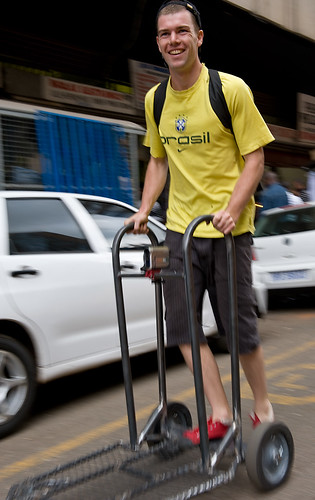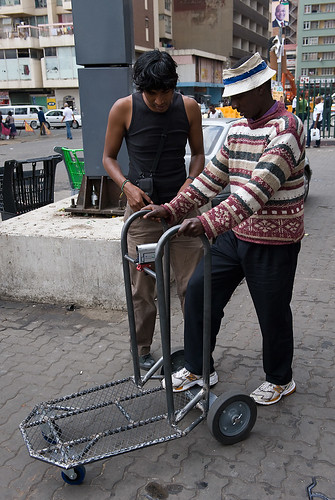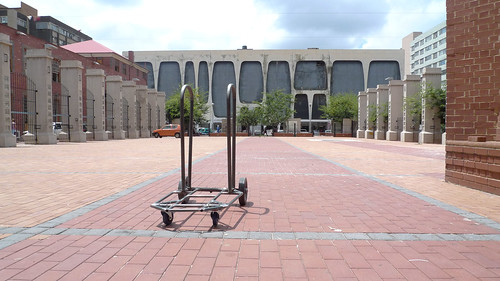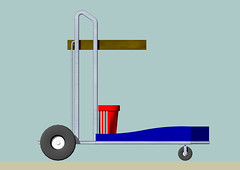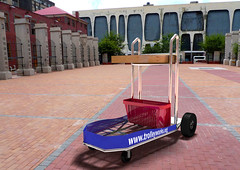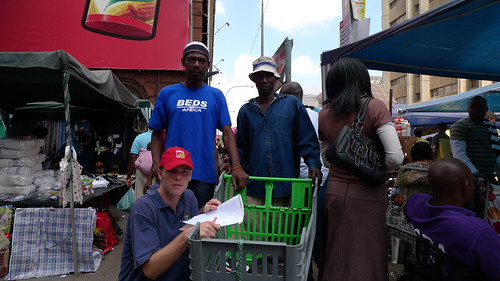The
Trolleyworks.org project was initiated with the primary aim to provide trolley pushers with a legal trolley alternative to the stolen shopping carts currently being used on the streets. A major problem associated with trolley pushing activity has been victimization by the police. Every time a raid occurs, trolley pushers are fined R300 and their trolleys are confiscated. Lately, raids have been occurring with increasing frequency and trolley pushers are being detained in prison for a seemingly harmless economic activity.
In addition to designing custom built trolleys for the legalization of the activity, the project also seeks to develop trolley pusher led guided tours of the downtown area. The tours are seen as a practical means to sustain the project. They are also seen as a strategy to address the need to walk in the downtown area of Johannesburg. Walking in Johannesburg is strongly linked to class, race, crime, fear and paranoia. The proposed tours attempt to address these challenges, whilst getting people thinking and contributing to a conversation related to the politics of public space in the city.

In total four custom built trolleys are being developed as part of an active experiment on Johannesburg roads. The trolleys are being designed to ride on, with large heavy duty wheels to ensure all road capability. The design also boasts a unique fold away research station, for conducting surveys and for storing information leaflets.
Four trolley pushers from the area have been identified to work as tour guides and as field researchers. The research team is currently conducting interviews and surveys aimed at providing demographic information about the trolley pushers in the area. In addition, they are also carrying out daily mapping exercises concentrating on spatially locating the various informal economic activities in public space.
The Trolleyworks.org project was initiated by Johannesburg based artist Ismail Farouk as part of the Sylt Quelle Cultural Award for Southern Africa 2008. The cross-disciplinary award, launched by the Foundation Kunst:raum Sylt Quelle and the Goethe-Institute, invited proposals from writers, artists, choreographers, musicians, filmmakers and others, in Southern Africa, focusing on practitioners that engage relevant social issues in their work. The first phase of the Trolleyworks project began in December 2008, and is proposed to run until May 2009.
